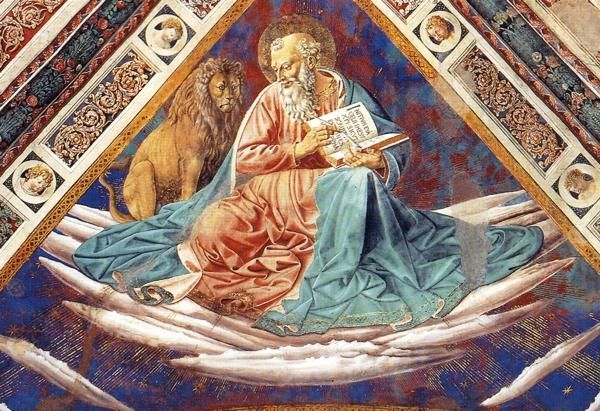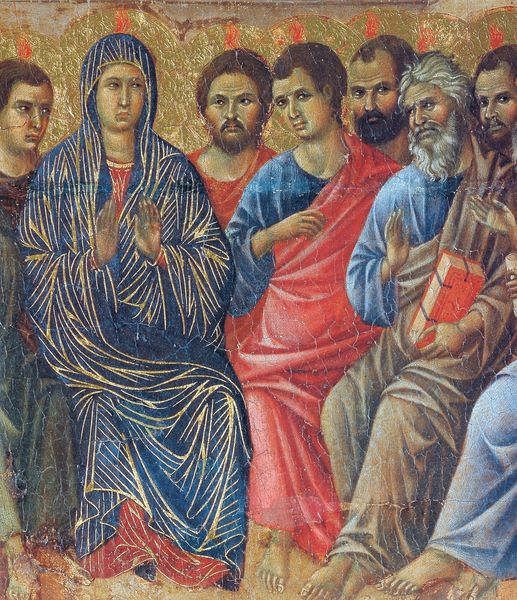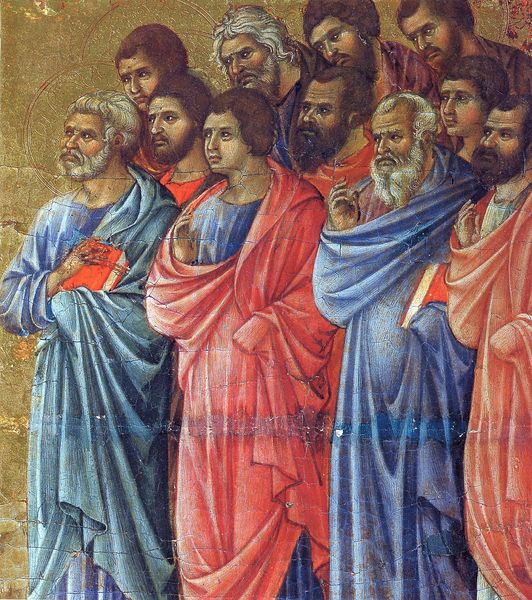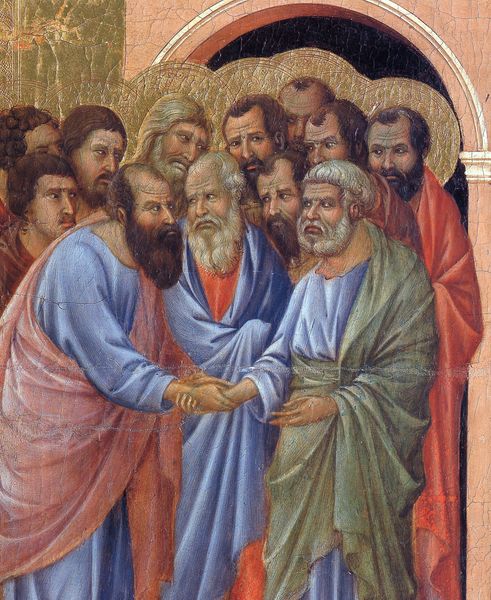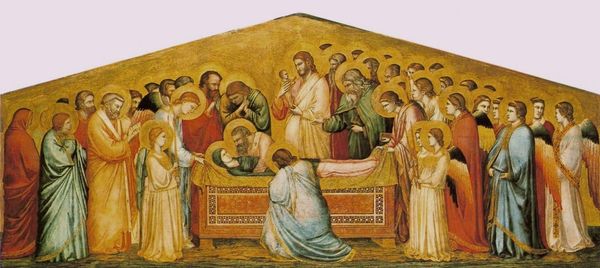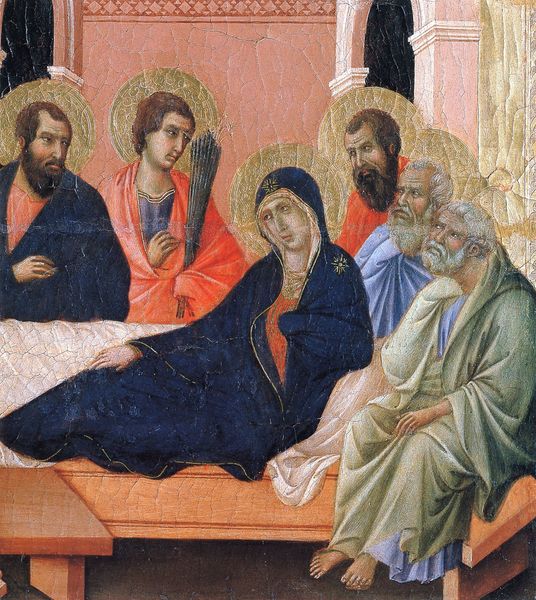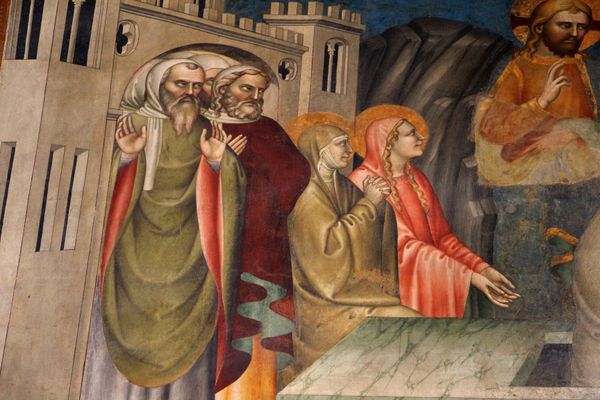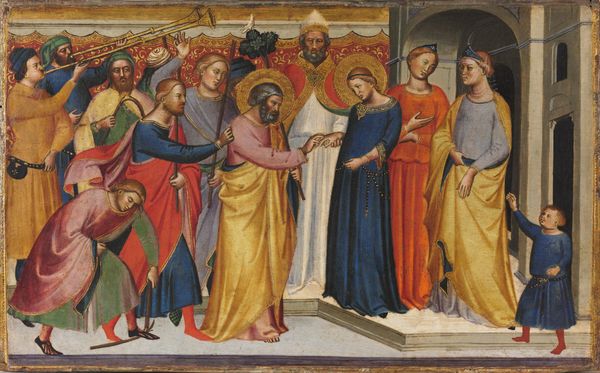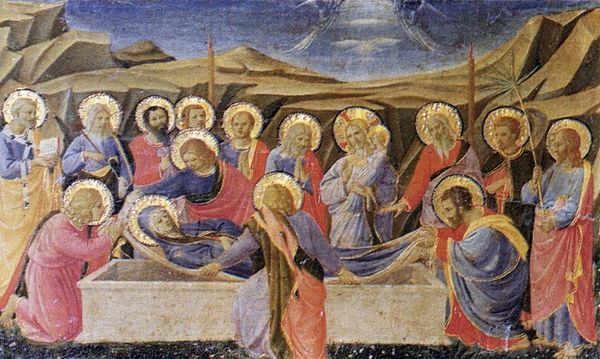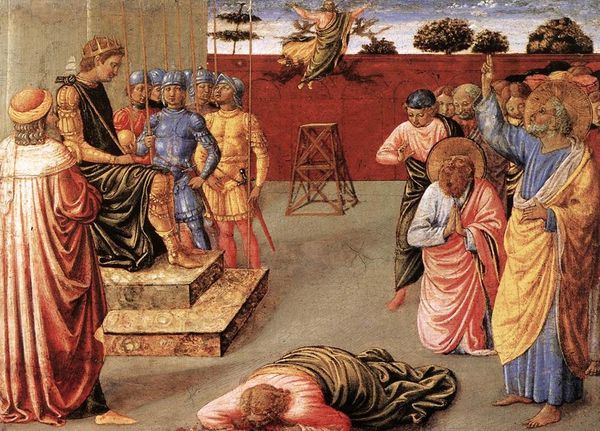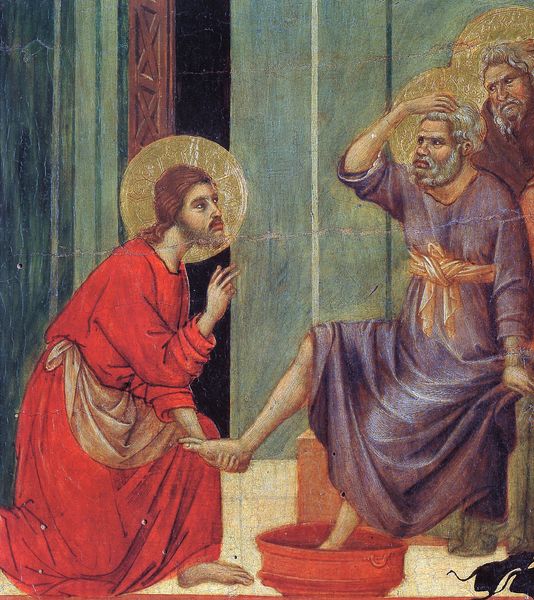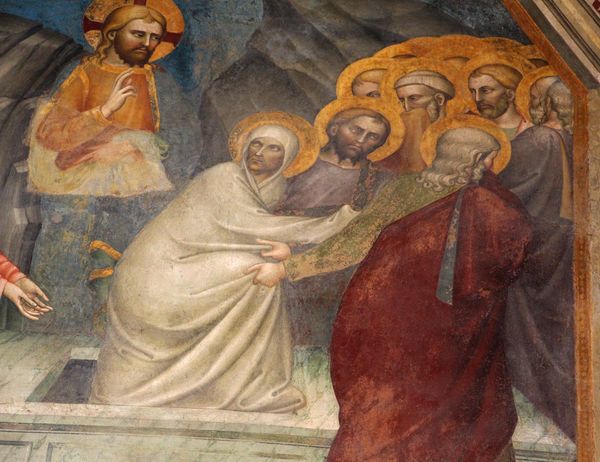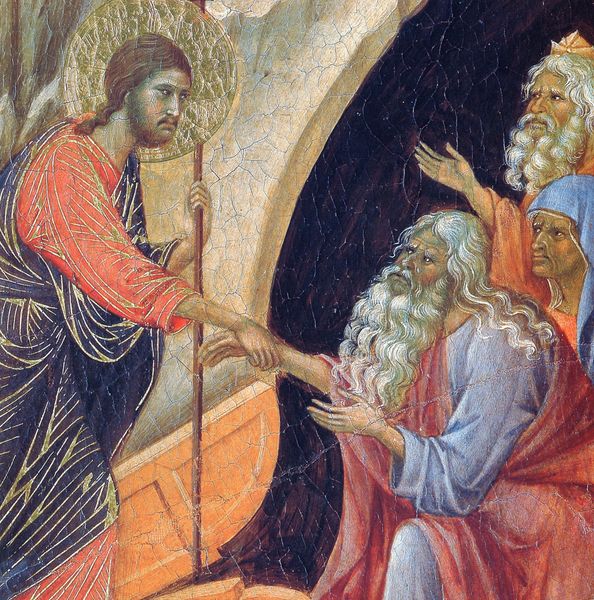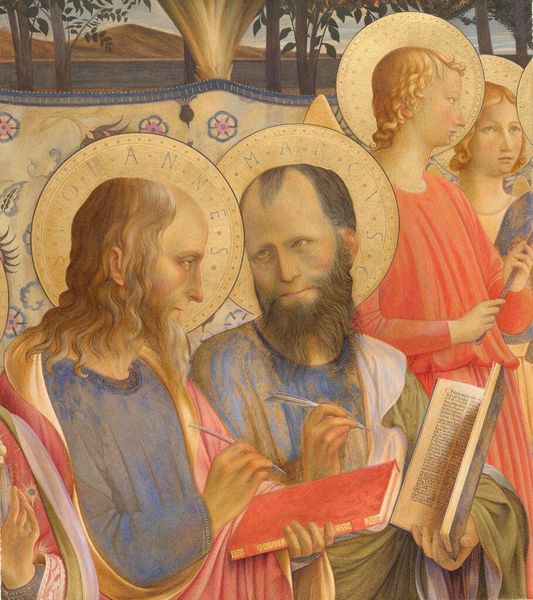
tempera, oil-paint, fresco
#
portrait
#
tempera
#
prophet
#
oil-paint
#
fresco
#
oil painting
#
studio composition
#
christianity
#
history-painting
#
academic-art
#
italian-renaissance
#
early-renaissance
#
portrait art
#
fine art portrait
Copyright: Public domain
Editor: This is a detail from Fra Angelico's fresco "Prophets", painted around 1447, located in the Duomo di Orvieto in Italy. I’m struck by the muted colors and the arrangement of figures, creating a sense of solemnity. How do you interpret this work from a formalist point of view? Curator: Note how the composition, while appearing somewhat static, subtly directs the eye. Consider the placement of the figures, the use of drapery. These formal elements do not merely depict prophets; they structure our reading of divinity itself. The subdued palette further accentuates this sense of serenity and order, don’t you think? Editor: Yes, the draping is interesting, but I'm not quite seeing how color influences my sense of divinity… Curator: Observe then how Angelico has meticulously modeled each fold, thereby producing intricate textures. Look at how the varying light produces complex chromatic juxtapositions. What effect does the halo produce with respect to the portrait overall? It flattens the dimension doesn’t it, but provides light from within? Editor: Now I see, the flatness against the detail... almost as if he is not completely present? <br> Curator: Precisely. Note also that the textual passage gives as much weight to graphic representation, the figures becoming hieroglyphs embedded in a symbolic order that cannot itself be named. Editor: This gives me a fresh perspective on the piece, going beyond the obvious subject matter and getting into compositional structures. Curator: Agreed. And how our awareness of pictorial elements informs our understanding of spiritual representation, that can allow us, potentially, to appreciate any great painting anew.
Comments
No comments
Be the first to comment and join the conversation on the ultimate creative platform.
